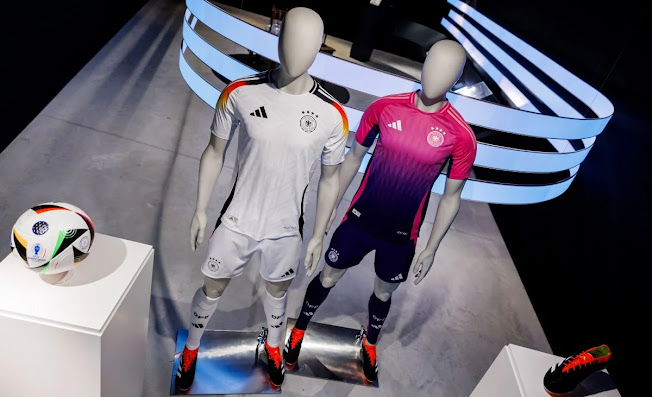The German Football Association (DFB) has sparked controversy by changing the provider of the national team's kit from longtime partner Adidas to competitor manufacturer Nike. Politicians have criticised the move, sparking a debate over national identity and business allegiance.
Beginning in 2027, the iconic German national team kit will be transferred from Adidas, a domestic brand, to Nike, a US-based sportswear behemoth. While the DFB claims that the move is financially prudent and would promote grassroots football in Germany, it has received severe criticism from major politicians.
Economy Minister Robert Habeck expressed disappointment, lamenting the perceived lack of "local patriotism" in the decision-making process. Similarly, Health Minister Karl Lauterbach condemned the move as "wrong," emphasizing the symbolic importance of the German national team's affiliation with Adidas.
Adidas has been the official provider of the German national team gear for nearly seven decades, contributing to the brand's iconic standing in football. However, rumours indicate that Nike's offer of around €100 million per year greatly outperformed Adidas' previous payment of €50 million, resulting in the contract transfer.
The revelation of the agreement on Thursday shocked German leaders across the political spectrum. For many, the picture of the German jersey decorated with Adidas' three stripes is inextricably linked to the country's identity, conjuring feelings of national pride and heritage.
"I can hardly imagine the German jersey without the three stripes," remarked Mr. Habeck, echoing sentiments shared by many. "For me, Adidas and black-red-gold always belonged together. A piece of German identity."
The decision to sever ties with Adidas in favor of Nike has reignited discussions about the intersection of sports, commerce, and national identity in Germany, highlighting the complexities of navigating corporate partnerships in the world of football.


No comments:
Post a Comment